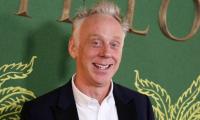Another year
It is a new year. As is the wont, there is great interest in knowing how this will turn out to be for a country that has become predictable only in one thing: unpredictability. There are ways to satisfy this curiosity. We can focus on some critical trends that the previous years have set in motion, to at least point out with reasonable assuredness areas that can potentially define national life in the Islamic Republic of Pakistan. Five sectors – not necessarily in order of priority – have to be on the radar of attention of anyone breaking a sweat trying to get a sense of the future.
Terrorism: Domestic terror trends will impact the country the most, in more ways than one. Terrorism has ebbed and flowed in the recent past and the nation has heard dozens of times stories of hundred percent success against organised terror – and yet the previous year saw striking examples of successful terror attacks across Pakistan. While acknowledging that there are foreign agencies engineering some of the trouble at home, the range of terror activity cannot be explained away by overusing the conspiracy theory. If we say we are completely in control of the domestic situation then it must show in progress made to stem terrorist and suicide attacks in urban centres.
This country has been in a state of military operations of various kinds, names, sizes and scopes and with each hangs a tag of a “great success”. But every year turns out to be another challenge. It is difficult to see how 2018 can be different from the past, considering the justifications we have heard from the highest pedestals about the “international conspiracy to destabilise Pakistan.” It would be logical to brace for continuing waves of terrorism in the new year – amidst self-serving chants of “well-done”.
Extremism: Be ready for a rise in extremism. Two streams can possibly feed into this rather dire scenario. One is the unshackling of the Barelvi mosque, madressah, shrine and mullah on the national scene as a political ploy to chip away the N-League’s support base in Punjab, and the Deobandi reaction to this phenomenon. The second is the Saudi-Iran rivalry and the expanding battle for regional hegemony and strategic clout. The first trend will feed on the second through resources being poured in, and the backing of political forces that support these sectarian blocs in Pakistan. Politics might become a proxy for expressing violent sectarian conflicts and rivalries. Because 2018 is election year, very little could be done about this drift towards a widening sectarian rift.
As has been the experience elsewhere, such developments inevitably bring to the fore the more hardcore of the lot who couch themselves in the robes of democratic rights and privilege. Moderate sectarian elements (an oxymoron, I know) will be sidelined, leading to a hardening of postures across the country. This will impact institutions. For years, we have understated the extent to which key institutions have been enveloped by religious parochialism. The year 2018 can test how strong the veneer of that pretension is.
Politics: Politics will be bitter, jagged, rough and conflicted. Just because this is election year does not mean that polling activity will help get the poisonous steam out of the system, something that has almost asphyxiated this country. In fact because 2018 is election year, get ready for another long round of screaming, shouting and abusive matches. Imran Khan wants to be prime minister at all costs. So does Shahbaz Sharif. So does Bilawal Bhutto. Election results will be hotly contested and there will be roars and uproars of rigging and manipulation partly because of the stakes involved in winning and losing. The run-up to the election process itself will be hugely problematic. The most formidable of these obstacles will be the formation of a caretaker government that will supervise the elections. Bloody and bruising battles will be fought over every inch of the way to the polls.
Later, a weak coalition government or a government formed from a wafer-thin majority will be hardly in a position to cope with the turmoil’s hangover. From the way things stand today, it will be a great surprise if any party is able to build a strong lead over the other. Smaller parties can look forward to holding sway in the new assemblies. We may have the honour of having Khadim Hussain Rizvi (or anyone and many like him) in the assemblies and be treated to his inspirational speeches on Islam and fellow Muslims. The seedling broke through political soil in 2017, and 2018 is the year of bloom for it and others of its kind.
The army will remain supreme, calling the shots in all matters it deems fit to define its realm. The judiciary will see more divergence in its conduct as the constitutionalists and the populists in this august building pull their respective weights in opposite directions. The media will remain partly free and partly chained – free to indulge in trivia, and chained and restrained from taking up issues of substance.
Economy: The spending spree of governments in power in the provinces and at the centre throughout 2017 as political investment in the 2018 elections will cost the economy dearly. It will add to domestic borrowing in the year ahead and will push inflation up. The twin-deficits of fiscal and current account will hobble the economy and CPEC’s early harvest in the new year will not change the country’s reliance on borrowing to survive. Because of the introduction of a caretaker setup to supervise 2018 elections, the change-over will make economic decision-making even more stop-gap.
The economy’s capacity to generate employment, to re-distribute wealth among the country’s teeming millions of poor in some form of reliable sustenance and its capacity to innovate by use of technology will remain as challenged as it has been traditionally. The economy will remain a ‘percentage point economy’ – where marginal improvements are depicted through graphs as major breakthroughs. Without an overarching national economic vision (which the new setup will have to develop afresh in the presence of an inherited backlog of challenges), day-to-day management will remain the order of the day pretty much throughout the year.
Defence and foreign policy: While traditional trouble from Afghanistan and India will remain what it has been all along in the recent past, the biggest challenge will be the US policy of arm-twisting and coercion. The Trump Administration’s 2017 fist-in-velvet glove policy is most likely to become more blatant and threatening. Washington can have a misadventure inside Pakistan and it can most certainly run a vicious campaign against Islamabad at the global level to justify its bullying. This will test the resolve of the country’s decision-makers as mere words spoken from podiums in press conferences will not be enough to deal with the trouble that Washington can cause by using force. Washington will remain the most important concern in the new year. So will be the Arab-Ajm rivalry. If 2017 is any guide, 2018 will see an expansion in this rivalry and our role as a neutral state (really?) will become untenable.
So all in all, 2018 looks like a year with more turbulence than stability, more challenges than solutions, more tension than calm. And in case you are wondering why the picture looks so grim, that is because a new year, in essence, is a changed number on a calendar. It does nothing to alter the consequences of the years gone by. The seeds you sow is the harvest you reap.
But for those wishing to stay blissfully happy despite the concerns cited above, here are a few options: watch TV morning shows, with their endless marriage ceremonies, fine finery, gaudy jewellery and gleeful guests. Or watch official press conferences. Both will give you an alternative to reality and you can then look forward to a great year.
The writer is former executive editor of The News and a senior journalist with Geo TV.
Email: syedtalathussain@gmail.com
Twitter: @TalatHussain12
-
 Cardi B Finally Responds To Accusations About Destroying 'SNL' Set After Nicki Minaj Joke
Cardi B Finally Responds To Accusations About Destroying 'SNL' Set After Nicki Minaj Joke -
 Gorton And Denton By-election Result: Green Party Defeats Labour In Blow To Keir Starmer
Gorton And Denton By-election Result: Green Party Defeats Labour In Blow To Keir Starmer -
 Jack Dorsey Cuts 4,000 Roles, Says AI Requires Smaller Teams
Jack Dorsey Cuts 4,000 Roles, Says AI Requires Smaller Teams -
 Reggie Bannister Health Takes ‘difficult Turn’ Amid Dementia, Parkinson’s Battle
Reggie Bannister Health Takes ‘difficult Turn’ Amid Dementia, Parkinson’s Battle -
 'Humble Traitor' Rob Rausch Makes Unexpected Move After Betraying Maura Higgins In Season 4
'Humble Traitor' Rob Rausch Makes Unexpected Move After Betraying Maura Higgins In Season 4 -
 Sarah Ferguson Drops An Accusation Against Andrew? ‘He Just Wants Leverage’
Sarah Ferguson Drops An Accusation Against Andrew? ‘He Just Wants Leverage’ -
 Anthropic Rejects Pentagon Military AI Proposal, Holds Firm On Safety Guardrails —What’s Next?
Anthropic Rejects Pentagon Military AI Proposal, Holds Firm On Safety Guardrails —What’s Next? -
 'Traitors' Reunion Drama: Rob Rausch Defends Strategy, Makes Shocking Revelation After Victory
'Traitors' Reunion Drama: Rob Rausch Defends Strategy, Makes Shocking Revelation After Victory -
 Inside Hillary Clinton’s Epstein Testimony: Key Takeaways And Highlights Explained
Inside Hillary Clinton’s Epstein Testimony: Key Takeaways And Highlights Explained -
 'Too Hard To Be Without’: Woman Testifies Against Instagram And YouTube
'Too Hard To Be Without’: Woman Testifies Against Instagram And YouTube -
 Kendall Jenner Recalls Being ‘too Stressed’: 'I Want To Focus On Myself'
Kendall Jenner Recalls Being ‘too Stressed’: 'I Want To Focus On Myself' -
 Ethel Kennedy’s 34 Grandchildren And The Expanding Kennedy Family Legacy
Ethel Kennedy’s 34 Grandchildren And The Expanding Kennedy Family Legacy -
 Dolly Parton Achieves Major Milestone For Children's Health Advocacy
Dolly Parton Achieves Major Milestone For Children's Health Advocacy -
 'The White Lotus' Creator Mike White Calls 'Survivor' Fans 'sadistic'
'The White Lotus' Creator Mike White Calls 'Survivor' Fans 'sadistic' -
 Oilers Vs Kings: Darcy Kuemper Pulled After Allowing Four Goals In Second Period
Oilers Vs Kings: Darcy Kuemper Pulled After Allowing Four Goals In Second Period -
 Calgary Weather Warning As 30cm Snow And 130 Km/h Winds Expected
Calgary Weather Warning As 30cm Snow And 130 Km/h Winds Expected



